
Is Lenin Still Relevant?
Viewpoint was invited to debate Lenin’s State and Revolution in a panel at the Left Forum. Check it out if you’re near New York City this weekend. Details below.

Viewpoint was invited to debate Lenin’s State and Revolution in a panel at the Left Forum. Check it out if you’re near New York City this weekend. Details below.
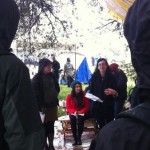
Legend has it that the campus of the University of California, Santa Cruz was designed by a prison architect who, in response to student riots at UC Berkeley, created a campus grid without a central point. Lacking a major quad or lawn, demonstrations would be dispersed to the individual colleges, defused and controlled. While this legend is certainly not true – UCSC was conceived of as an experiment in “human-scale” education whose existence was to challenge the dehumanizing size of state universities – the layout of UCSC does present this challenge to student activists.
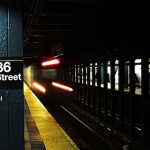
In 2007, Washington Post columnist Gene Weingarten and Grammy Award-winning classical violinist Joshua Bell teamed up to play a prank on commuters in Washington, DC’s public transportation system. Weingarten’s account of what he called “an experiment in context, perception and priorities—as well as an unblinking assessment of public taste” appeared in a Post article called “Pearls Before Breakfast.” It describes how Bell stood in the L’Enfant Plaza Station posing as a subway busker, and performed a selection of classical pieces typical of his concerts. He played them on his Gibson ex Huberman Stradivarius—a 300-year-old piece of wood that is valued at $3.5 million.
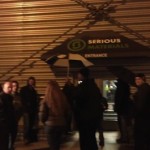
Last Thursday night, workers for Serious Materials in Chicago occupied their factory. The night before, Occupy Philly’s Education and Training Working Group held a meeting of its ten-week “Dissecting Capitalism” workshop, at the Lancaster Avenue Autonomous Space. Viewpoint editor Salar Mohandesi spoke on the topic “Contemporary Labor and Workplace Struggles,” along with Sean West Wispy, an organizer at Occupy Philly with experience in the labor movement.
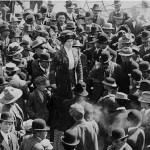
On January 8th, 1912, the business and property owners of the San Diego Common Council passed Ordinance No. 4623. The function of the ordinance: to criminalize free speech in a zone centered around the intersection of 5th and E streets, populated primarily by workers. By January 16th, the IWW had responded by forming the “California Free Speech League,” with the support of socialists, churches, and other union locals. The Wobblies, with the benefit of sheer numbers and little else, sought to test the ordinance and its enforcement with aggressive soapboxing and incessant speechifying in the restricted zone.
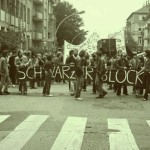
The “internecine ultra-left argument of the moment,” says the Wall Street Journal, is the debate over the “black bloc.” And if this debate has led the WSJ to talk about “ultra-leftism,” it’s clearly a debate we have to address.
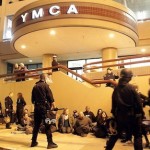
Twenty-four hours into my incarceration in Santa Rita Jail, I found myself in yet another tactical conversation, dissecting the numerous failures that had led to the kettling and mass arrests of about 400 Occupy Oakland demonstrators. This is one of the few upsides of a mass arrest. After getting the rowdy activists off the streets, the police find themselves hosting a three-day strategy conference inside the jail. Whenever a conversation begins to get stale, the guards show up and shuffle people into new discussion groups, and the debate begins afresh.
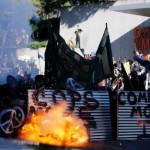
“Don’t fuck with the Oakland Commune.” Words which will live forever in history, to be remembered and repeated at every glorious defeat inflicted upon the heroes of the future by mayors, police officers, unions, churches, and children. A letter, signed by the Occupy Oakland Move-In Assembly, promised to respond to the inevitable eviction of an illegal building occupation by “blockading the airport indefinitely.” Tactics only dreamed of by al-Qaeda, within the reach of Occupy Oakland after just four months. Yesterday these words were at the center of a material practice which brought our movement up against its limits.
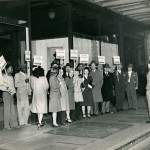
I have been asked to say a few words about Marty Glaberman and Stan Weir. It may be that the request is prompted in part by recent events on the West Coast waterfront. I have followed those events with interest, but I am not there and I have not had an opportunity to talk with participants. Accordingly, please consider my remarks about my departed friends and comrades on their own merits, such as they may be, and accept my assurance that no implicit message about current events is intended.

From its beginnings in New York City to the recent West Coast Port Shutdown, the Occupy movement has consistently confronted the issue of co-optation. About a month and a half or so ago, many participants voiced worries about being co-opted by MoveOn, the Democrats, unions (to a lesser extent, since they had shown up as allies without seeming to try to monopolize the definition of actions and events), and other groups affiliated with the political parties.